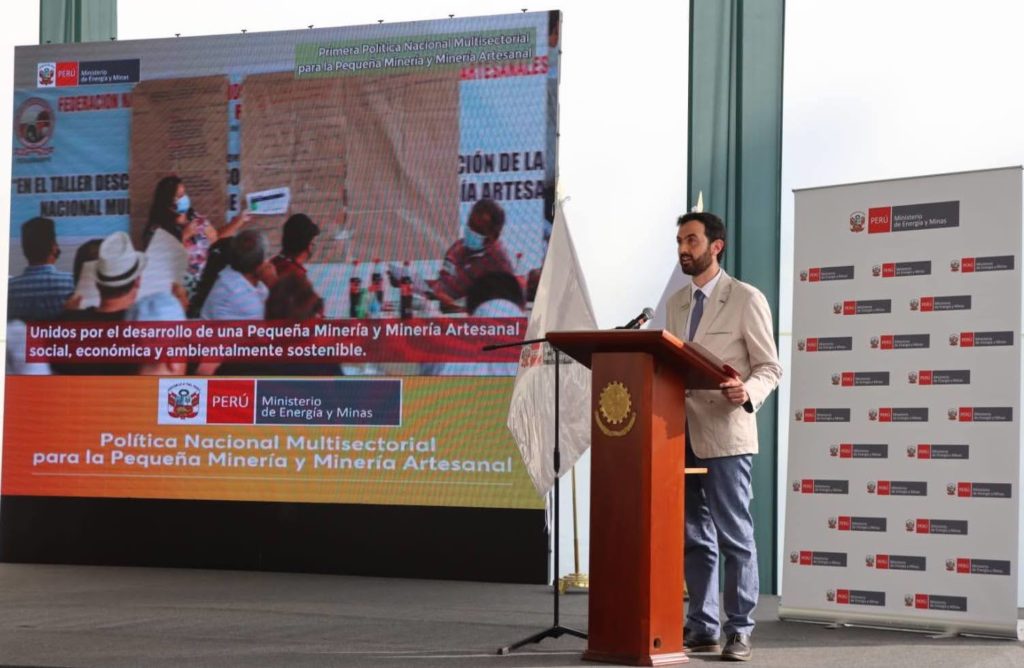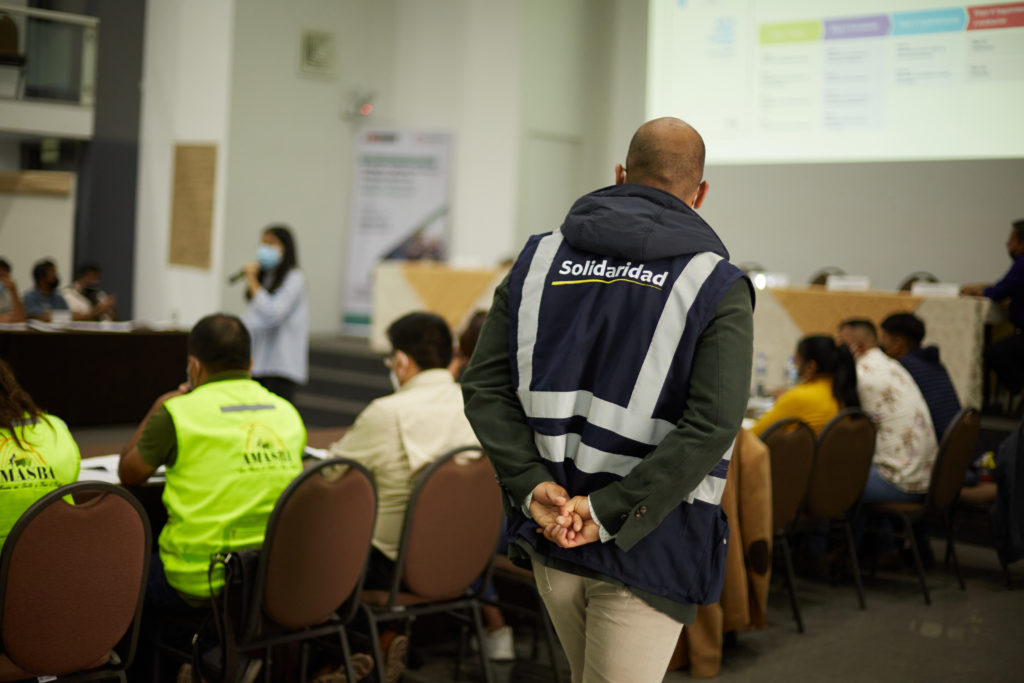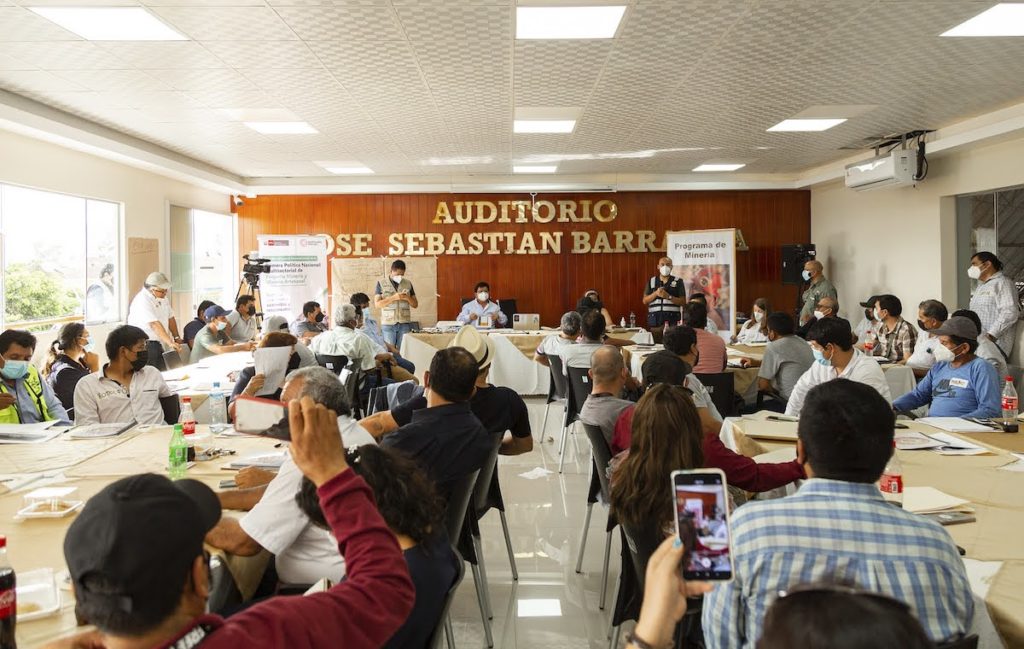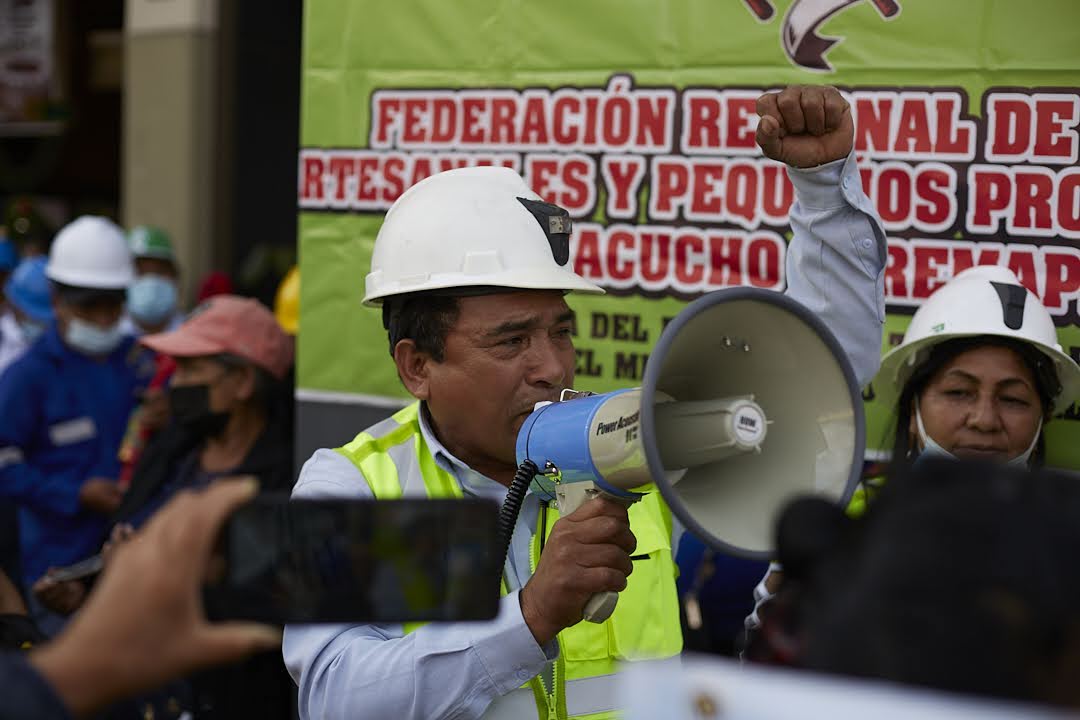On December 5th, a day that commemorates Miners in Peru, small-scale miners welcomed the launch of the first multisectoral policy that accounts for the complexities of ASM and will provide customized guidelines and public services to formalize the sector. This policy will create the social, labor and environmental conditions needed to improve sector sustainability, and most importantly, improve miners’ access and position in formal value chains.

Across the more than 80 countries that have an ASM sector, few have a national policy of this kind. This paves the way for collaboration with the private sector, civil society, the higher education system, and international cooperation.
Solidaridad, through the RECLAIM Sustainability! programme, has contributed to this milestone on two fronts:
- Technical support to the General Directorate of Mining Formalization – This process followed strict quality standards and guidelines provided by the Guide of National Policies from the National Centre for Strategic Planning.
- Coordination of dialogue spaces to build awareness and validate the Policy’s scope and contents – This included seven macro-regional workshops organized in Puerto Maldonado, Abancay, Juliaca, Ica, Nazca, Arequipa and Trujillo. These were key to accurately collecting all the aspirations, demands and commitments of 350 representatives from the several miners’ associations, guilds and federations nationwide.

BOOSTING LEGAL FRAMES CONDUCIVE TO ASM’S SUSTAINABILITY
Before the ASM Policy was in place, Peru primarly focused its ASM efforts towards the eradication of illegal mining in one region of the country. In fact, the State invested 85 percent of its public budget in this effort, leaving just 15 percent to promote the sector formalization in the country’s other 24 regions.
As a result, ASM developed into an informal sector that was stigmatized and trapped in an unsustainable growth model. Informal miners were dismissed by sectors of the Peruvian Government, and remained excluded from the formal economy.

Within this context, the new ASM Policy sets a new paradigm for the development and professionalization of the sector. The initiative is endorsed by traditionally marginalized actors and builds on their contributions, which were integrated in the process thanks to a collaboration between the Ministry of Energy and Mines and Solidaridad.
The Policy has set the following objectives:
- Reduce the social, labor and environmental precariousness of the ASM value chain.
- Increase ASM access to formal value chains.
- Increase ASM miners’ access to mining concessions tenure and land use permits.
- Improve the articulation between institutions and the capacity within the State entities related to ASM.
From 2023 onwards, this new Policy will be articulated throughout various mining sector plans. Public services will be further defined, and new processes for continual improvement and evaluation will be developed.
Solidaridad, through its RECLAIM Sustainability! programme, will continue to ensure that the perspectives of the most vulnerable in the value chain, including women miners and traditional miners, are included in the decision-making process on services and regulations that will originate from this new Policy.
Read more on the development of Peru’s ASM policy here.

